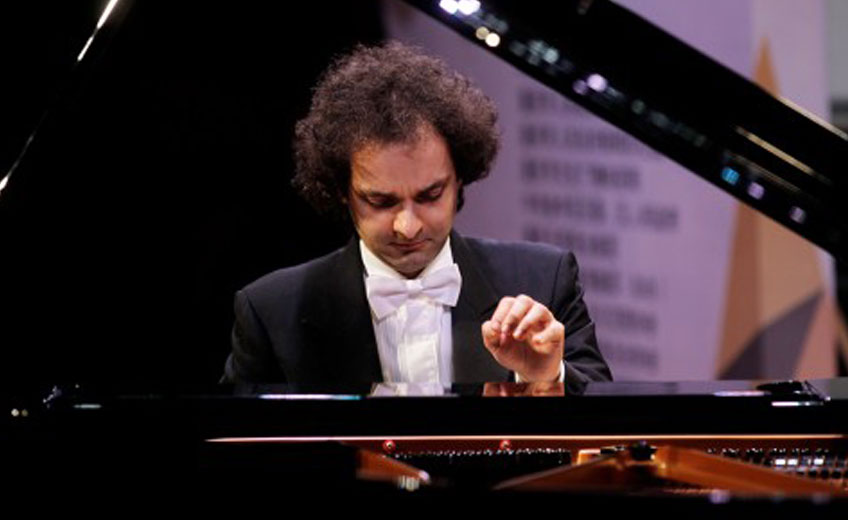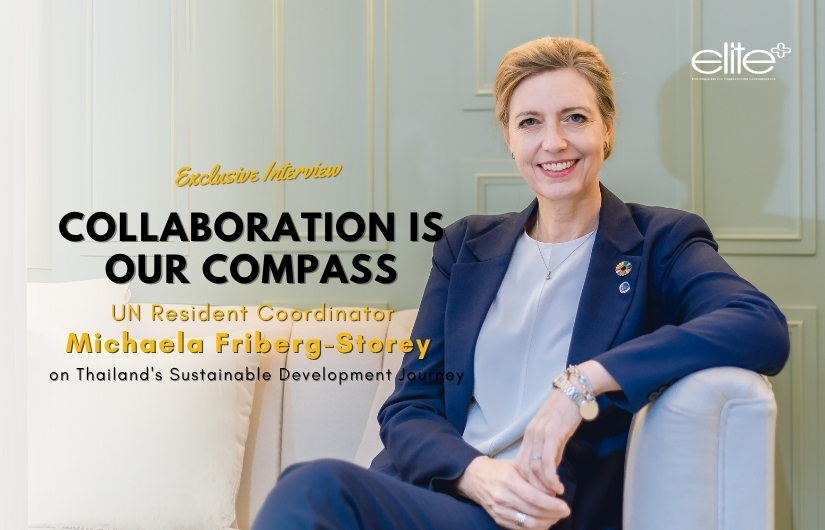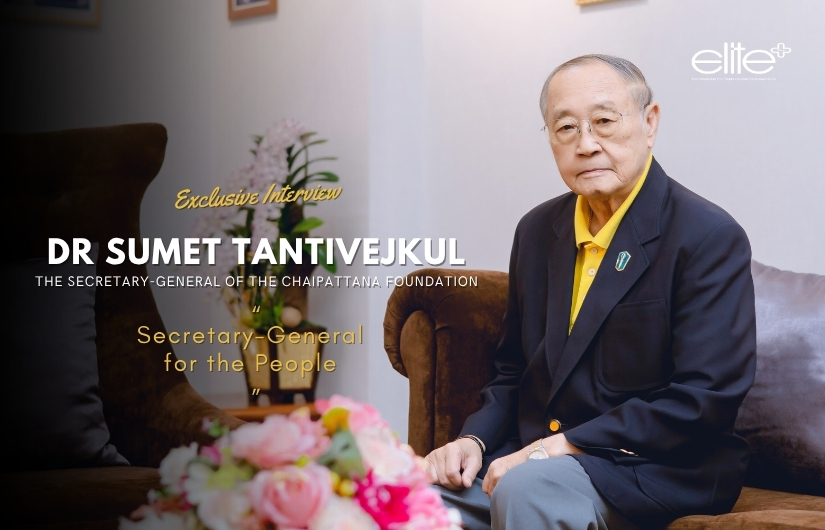C onsidered an extraordinary talent and excellent interpreter of classical music, Christian Leotta is one of a handful of world renowned 21st-century pianists. His love for and dedication to Beethoven’s sonatas is widely regarded; at the age of 22 the Italian performed all 32 of Beethoven’s sonatas, one of the youngest pianists in the world to do so. Mr Leotta has travelled the globe as a soloist and been joined by orchestras in every international music capital, recently performing the complete 20th Beethoven cycle in Japan.
During his visit to Bangkok in late June for the Italian Festival 2016 hosted by the Italian embassy, Elite+ managed to interview him after his performance at the Thailand Cultural Centre, which featured the Bangkok Symphony Orchestra and sent his admirers in the city into raptures. Mr Leotta spoke about his career, his philosophy in music and his experience of studying under the only existing lineage to Beethoven himself.
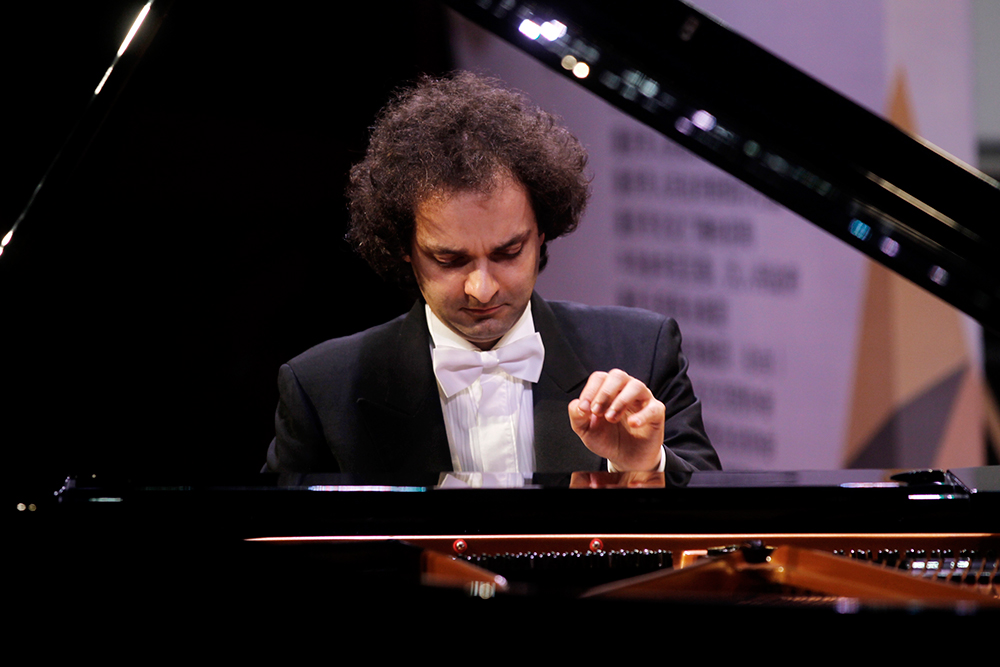
What inspired you to become a pianist?
Classical music was in our home. We had a piano. My sister was taking lessons. I started to listen to my father’s classical music records when I was five. I put on different records of great composers and listened to them all day. By the age of six, I knew several pieces of opera music by heart. Then at seven, my father gave me my first piano lesson. A philosophy professor at the time, he taught me to read notes. Four months later I outdid his knowledge so he sent me to my first music academy. After a year at the academy, I could play Waldstein and Beethoven sonatas, which made my teacher say, “I don’t know what to do with this kind of talent. You must send him somewhere else.” Before I departed, she prepared me for my first national competition, which was also my first performance in public. I played Beethoven and my own compositions and won the first prize.
Until then I actually wanted to be a composer. I wrote songs. But when I was admitted to Milan’s Conservatory, the best music school in Italy, my teachers decided I must become a solo pianist and I gradually quit composing. By 13, I was determined to walk this career path and embarked onto the endless practices of the solo piano repertoire.
What was your routine as a child and how is it now?
I was lucky to always be the teachers’ favourite, meaning they gave me the maximum but also expected the most out of me. They had me practise all the classical music you could hear on a piano. I had to practise, go to the conservatory and an academic school; it was not easy. But my mind was determined. I always wanted to practise more and more. I knew what people expected of me. At 14, I played with an orchestra for the first time. I thought I was merely a boy and if people trusted me that much I mustn’t disappoint.
Weeks before concerts, I practise eight to 10 hours a day, four hours in the morning and the rest in the afternoon. If I am not preparing for a show, I do four to six hours a day. Another thing in the routine is exercise, which takes 40 minutes from my mornings. This exercise relieves stress from my body, especially my back. If I do not exercise for a week, my back hurts an hour after playing piano. Diet is also crucial. I take more protein during preparations for concerts.
You studied with Karl Ulrich Schnabel and some of the great pianists of our time. What did you take from them?
My teacher at Milan’s Conservatory taught me how to play a piece and how to perform. That was the first important step. I studied with Karl Ulrich Schnabel from 16 to 21, learning classical repertoires, especially Beethoven, with him. He is the son of Artur Schnabel, who studied with Theodor Leschetizky, who studied with Carl Czerny, who himself studied with Beethoven. This is the only existing lineage to Beethoven. Schnabel contributed so much to the pianist I am today. He gave me so much confidence. It was like having the best teacher to teach me how to read a language and I can now read it well.
Does the lineage you mentioned make you an excellent interpreter of Beethoven’s music?
Yes. And also because Beethoven is my favourite composer. It is a combination of knowledge from Schnabel, the love I’ve had for Beethoven since I was a child, tremendous amounts of practising and experience. I develop new interpretations after every performance. I have already played the whole cycle 20 times. I developed new interpretations a lot between the fifth and 10th time. And there will be new interpretations as long as I play his sonatas.
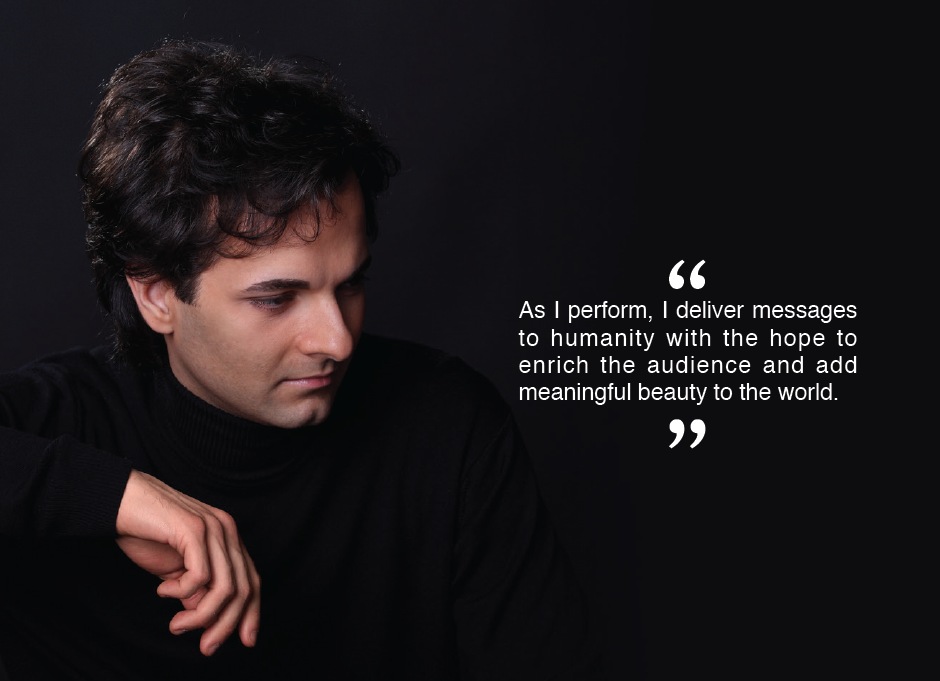
What do you have in common with Beethoven?
I know he was a great composer, but unfortunately there is no record of his music so we do not know how he was as a performer. He liked legato sounds and that is why his music has so many beautiful lines. I too like the sounds, so I guess our playing can be similar.
You studied literature and philosophy. How do you apply that to your career?
I studied philosophy because I admired Kant. Actually, that is another point we share. Beethoven liked Kant too. I find philosophy so beautiful, universal and timeless. And so are Beethoven’s messages. As I perform, I deliver messages to humanity with the hope to enrich the audience and add meaningful beauty to the world. Philosophy also makes me become a better music interpreter.
What is your philosophy in playing music?
To respect the composers. The notes contain their messages, which I only deliver and have no right to change. I make sure I understand the notes and make the messages alive by transmitting them to the public. My role is to be a medium between the composers and the public. This is what Schnabel taught me other schools might teach something else. However, if you are a pianist, the way you make sound on a piano is unique to you. Like a singer, you can learn all the techniques but your voice is yours you cannot obtain it from anywhere else. The way I played when I was nine and the way I do now are the same. To say it in other words, I deliver composers’ messages with my personality. It is an accomplishment if I make the audience think “What beautiful Beethoven’s sonatas I’ve just heard!” and their thoughts revert to me “Oh, thanks to him”.
I believe a good piece of music can give individuals an experience of feelings they have never had in their lives. The music delivered is like mirrors put in front of individuals which allow them to dig deep into their souls, and perhaps to see the selves they have never encountered. I have learned that the music I play has such power when I read reviews of my concerts. A Japanese critic who saw me perform in Kyoto wrote that by the time I played the last sonata, he could no longer feel his surroundings, there was only the music and himself. He was in a trance state. Not only that review was encouraging, it proves what I believe is true and not just in my head. It stated the beauty of my job.
You’re already an accomplished pianist – what’s next?
I will continue to play Beethoven and explore other composers. I have just started studying and playing Schubert and I am very excited about it. He is completely different from Beethoven, yet close enough. Schubert will be another cycle to perform. And maybe in a few years, Mozart. I simply want to keep playing and do it as naturally as I can. I hope to forever maintain this ability to dedicate energy and time to what I love most in life.


